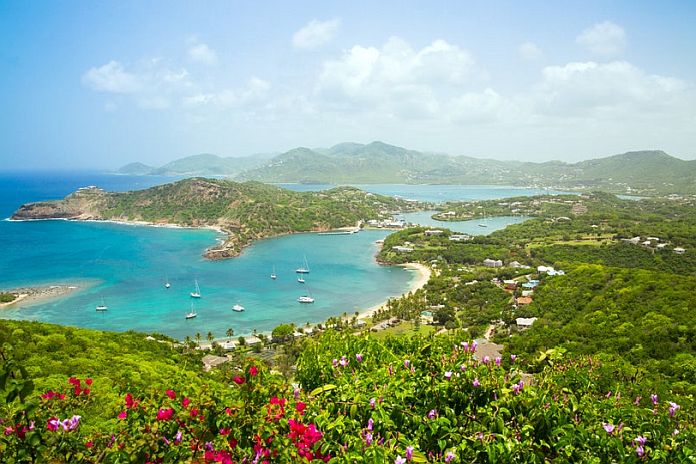By Caribbean News Global ![]()
ST JOHNS, Antigua – The government of Antigua and Barbuda announced a phased approach to the reopening of Antigua and Barbuda’s tourism and hospitality industry as the destination re-opened borders on June 1, 2020.
The Antigua and Barbuda Tourism Authority provide travellers with the most accurate information about travel to Antigua and Barbuda, and COVID-19. A series of travel safety protocols have been introduced which impact elements of the visitor experience, from arrivals at ports of entry, through ground transfers, resort accommodations, restaurants, tours and attractions.
Governments around the world have responded quickly and strongly to mitigate the impact of COVID-19 on their tourism sectors, new research from the World Tourism Organization (UNWTO) has found. As many destinations begin to ease restrictions on travel, the specialized United Nations agency has released its first briefing note on tourism and COVID-19, illustrating efforts taken to safeguard jobs and lay the foundations for recovery.
Tourism a lifeline for millions
UNWTO secretary-general Zurab Pololikashvili said: “The determination of governments to both support tourism and now restart tourism is testament to the importance of the sector. In many countries, particularly in the developing world, tourism is a major supporter of livelihoods and economic growth, and so it is vital that we restart tourism in a timely and responsible manner.”
UNWTO found that the most common form of economy-wide stimulus packages adopted by governments focus on fiscal incentives including exemptions or deferrals of taxes (VAT, corporate income tax, etc.) as well as providing emergency economic assistance and relief to businesses through monetary measures such as special credit lines at reduced rates, new loan schemes and state banking guarantees aiming at address liquidity shortage. These policies are complemented with a third pillar to protect the millions of jobs at risk through flexibility mechanisms put in place in many countries, such as exemption or reduction of social security contributions, wage subsidies or special support mechanisms for self-employed.

Small businesses, which make up 80 percent of tourism, have received targeted assistance in many countries. In addition to a general overview, the briefing note takes a closer look at all tourism specific measures implemented by countries and showcases examples of fiscal and monetary measures, initiatives to protect jobs and promote training and skills, market intelligence initiatives and public-private partnerships, as well as restarting tourism policies.
The briefing note underscores that to restart tourism, restoring trust and confidence in the sector is crucial. In countries where tourism is back on the path to reignition, health, and sanitary protocols, certifications and labels for clean and safe practices and safety “corridors” between countries are the most common measures. With domestic tourism as a priority at the moment, promotional campaigns, product development initiatives, and vouchers begin to emerge in a few countries.






